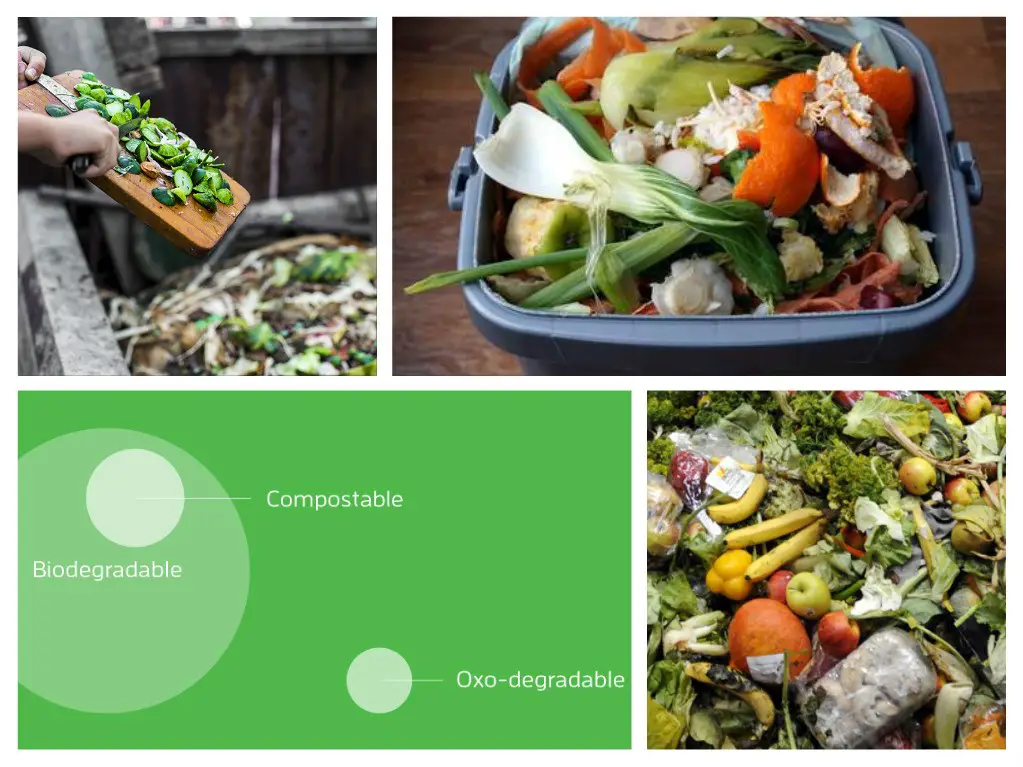Anyone interested in a self-sufficient lifestyle knows that old foodstuffs, plant materials, and other natural waste materials can often be composted down into fresh and healthy topsoil. This method of recycling allows for better natural soil nutrition while also allowing us to recycle. Unfortunately, not everything can go on the compost heap! Some things are biodegradable but not compostable… so let’s talk about the difference.

What’s ‘Biodegradable’?
There are two types of degradation in relation to resources. One of these is biodegradable, the other is simply degradable. Degradable materials need to be broken down using man-made or natural chemical interactions. Biodegradable items can be broken down by living things such as molds and bacterium.
What’s ‘Compostable’?
Any item that can be ‘composted’ can be turned back into its component materials in a carefully controlled environment. The level of bacteria, heat and light in a compost pile must all be working together to effectively speed up the rate at which organic matter degrades.
Things that are compostable are often biodegradable, but not all biodegradable items are compostable… If that makes sense. If not, don’t panic. This article from Hello Natural Living explains it very well.
What’s the Difference?
So compostable items need to biodegrade within a certain amount of time to be classed as fully compostable. Further to this, some items will biodegrade – but won’t do so within the controlled environment found in a composting facility. Arguably, all items on this earth are degradable, but the rate at which they return to their component materials and the things they require in order to do so greatly differ.
That is why we have the three separate classifications for the efficient recycling of the three different types of so-called organic waste.
So… What Can’t I Compost?
Now that we know the difference between biodegradable, degradable, and compostable, let’s look at some of the items that we shouldn’t throw on the compost pile.
Some natural materials you should never compost include:
- Oil – Oils will upset the balance of bacteria in your compost pile. Worse, it will seep into and pollute the ground beneath.
- Animal waste – animal waste gives off harmful bacteria. It is biodegradable and does so within the required timeframe – but it may contain viruses, pathogens, and other harmful by-products.
- Invasive species – if you are clearing invasive plant species from your land then you need to follow government guidelines or you will risk further contamination.
- Tea bags – if you drink the type of tea bag recently found to contain micro plastics then make sure you are slicing open the bags before you add them to the heap.
- Strong smelling herbs, chestnuts, citrus – all of these actively scare away the same pests you need to break down the material in a healthy compost pile. Avoid these things for best success.
Conserve-Energy-Future have more tips on things you really shouldn’t compost.
Choose Compostable!
The upshot of all of this is that choosing biodegradable and compostable materials is a better choice for the planet – and for your vegetable patch. Be smart and choose compostable. You are doing the whole world a favour.

